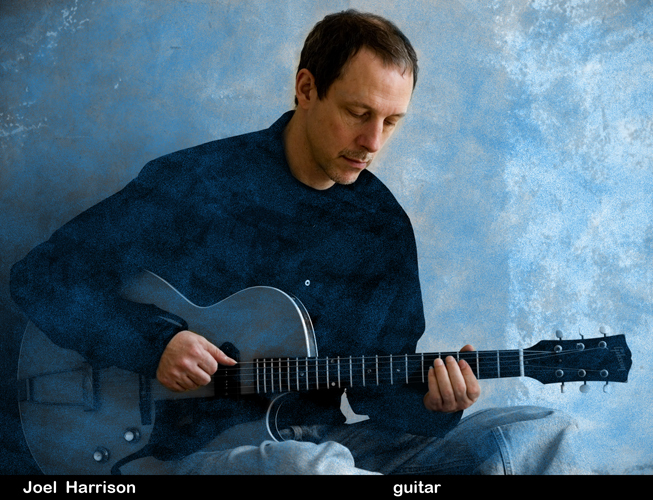Joel Harrison – The Wheel (2004/5)
5 Movements for Double Quartet and Guitar
Joel Harrison: composer, guitarist
First violin: Mark Feldman
Second violin: Christian Howes
Viola: Caleb Burhans
Cello: Wendy Sutter
Alto saxophone: David Binney
Trumpet: Ralph Alessi
Bass: Lindsey Horner
Drums: Dan Weiss
The impulse for this piece came from a longstanding determination to make music that equally represents improvisation and notation. When Jazz gets tiresome (too much soloing and predictable textures and form), and classical music gets stodgy and monolithic, I tend to dream up pieces that try to incorporate my favorite aspects of both. One of the reasons we love Duke Ellington is that he found a way to make Jazz that had a huge amount of written material to back up and enhance the
improvising. It’s a difficult task- the writing can overwhelm the joy of spontaneity, and conversely the solos can sound tacked on and useless. Furthermore, it is very hard to find players who are skilled enough, or even willing, to straddle both worlds. Only 20 years ago this piece would have been practically inconceivable. It is only relatively recently, for instance, that classically trained string players have developed a serious capacity to improvise and “rock out.” Particular challenges involve the balance of the instruments, blending the drums with the strings, and creating lines that sit well on both the horns and the strings.
Two classic ensembles from their respective worlds, then- string quartet and jazz quartet. Rather than writing jazz music and then throwing on some strings like icing on a cake, I decided to start by writing string quartet music with Appalachian, African, and modern classical sensibilities. The improvisation stems from a bedrock of notation, and comes in a variety of forms, from more typical solos over changes, to duo improvising, to free ensemble ‘blowing.” Hopefully there are seamless transitions between the soul and spontaneity of improvising and the structure of written notes, resulting in a kind of music that truly IS both worlds, and does not just borrow from them. Check out: http://www.joelharrison.com

